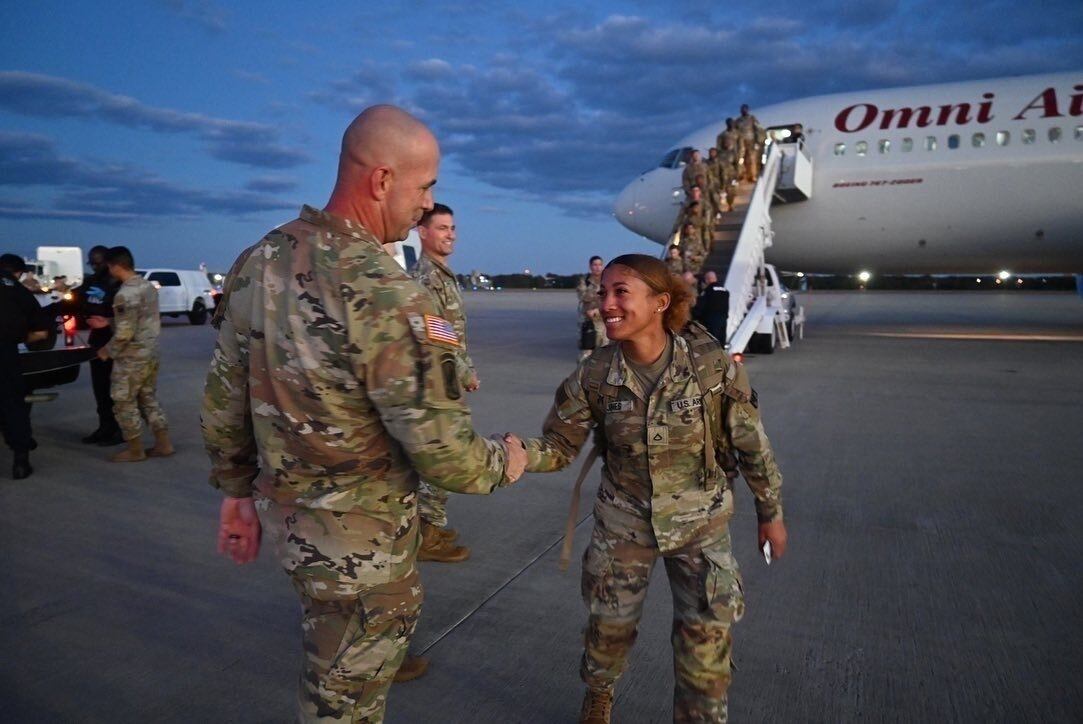This story was first published in the Fayetteville Observer.
About 150 soldiers arrived back at Fort Bragg on Tuesday night after an eight-month deployment in Europe.
The soldiers, who are part of the 3rd Battalion, 321st Field Artillery Regiment, rapidly deployed to Germany on Feb. 28 in support of the 18th Airborne Corps and the immediate response force’s mission to bolster NATOS’s eastern flank and support NATO in deterring Russian aggression after Russian invaded Ukraine.
The regiment transferred responsibilities to the 1st Battalion, 14th Field Artillery Regiment from Fort Sill, Oklahoma, on Saturday.
Another 150 soldiers with the Fort Bragg-based battalion will also return back this week.
In February, Pentagon officials announced that about 4,700 paratroopers with the 82nd Airborne Division would go to Poland in wake of Russia’s Feb. 24 invasion of Ukraine, while more than 200 soldiers with the 18th Airborne Corps and its supporting units would go to Germany.
The 82nd Airborne paratroopers returned to Fort Bragg in July, while the 18th Airborne Corps’ headquarters has remained in Germany since February.
“It’s great to be home after an eight-month deployment, especially one that when we kicked out it was kind of unknown what the mission was going to be, Maj. Gabe Dearman, the battalion operations officer for the regiment, said moments after disembarking from an aircraft at Pope Army Airfield. “We just knew we were going over there to reinforce and assure our allies and partner forces and deter further Russian aggression. It just feels really great to have done that for eight months, and to be home is such an honor.”

Dearman said because of the rapid 48-hour deployment, it was one of the first instances to his knowledge that the battalion was able to use pre-positioned Army artillery stock in training.
“The training there was phenomenal, a very permissive environment to really train and get after some of the core tasks,” he said. “I feel like we are as ready as we were when we left eight months ago.”
During the eight-month deployment, the regiment took part in several training events across the continent including in Germany, Poland, Sweden and Latvia.
“We went to ranges to stay proficient on our warrior tasks and drills,” said Sgt. 1st Class David Butler, a distribution platoon sergeant for the regiment.
Dearman and Butler said while they’re proud the unit was able to support NATO allies, they are also glad to be back home.
Dearman said reintegration and a few administrative requirements are next for the unit.
“But then we’re going to take some much-needed time off,” he said.





